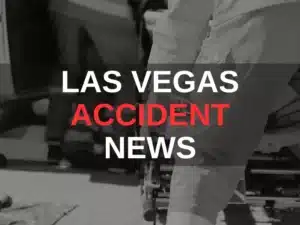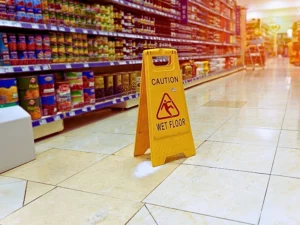If a negligent party caused a boating accident and subsequent damages, you may be able to file a boating accident lawsuit with the help of an attorney.
To open a claim or lawsuit following a boating accident in Las Vegas, call George Bochanis Injury Law Offices at 702-388-2005 to schedule a free consultation with a boating accident attorney.
Does Nevada Have Boating Laws?
Nevada has several important boating laws to consider, with various lakes and rivers often seeing this activity.
These laws include:
The Need to Remain at the Scene of an Accident and Provide Aid
If a personal watercraft operator gets into an accident at any point, he or she will be legally obligated to provide aid to individuals who require medical attention, providing the individual is capable of rendering aid.
Additionally, you are legally required to exchange information with all parties involved in the accident, including names, phone numbers, addresses, boating license numbers, and the make, model and identifying information of boats.
If you don’t render aid when possible or fail to exchange the necessary information with others, you could face a misdemeanor charge that may culminate in fines of up to $1,000 or up to six months in jail.
Reporting an Accident
In addition to providing aid and exchanging information, boat operators must report accidents that either result in damage exceeding $2,000 or any type of injury or fatality. Specifically, you will need to report the accident to the Nevada Department of Wildlife (NDOW) before 48 hours have passed after the accident.
The legal repercussions for failing to report accidents are the same as the failure to render aid or exchange information, resulting in a misdemeanor charge carrying up to a $1,000 fine and up to six months in jail.
Staying Within the Speed Limit
Like other vehicles, boats have strict speed limits in Nevada waters. However, the speed limit is applied under specific conditions.
You cannot exceed five nautical miles per hour with your boat if you are within 100 feet of individuals performing any activity in the water without a vessel, or if you are within 200 feet of populated beaches, diving platforms or floats, lifelines, or any area where boating passengers disembark.
The penalties for speeding are the same as other misdemeanors, resulting in fines of up to $1,000 and six months of jail time.
Keeping a Lookout
Boat operators must also keep a lookout for other nearby vessels and individuals. If an accident results from the failure to maintain a lookout and injuries or property damage occur, the negligent operator could face a misdemeanor charge with up to $1,000 in fines or up to six months in jail.
Boating Under the Influence (BUI)
Also, similar to other vehicles, it is illegal to operate a personal or commercial watercraft while intoxicated. You could face fines of up to $1,000 or six months in jail if you operate a boat while under the influence of alcohol or if you have a blood alcohol content (BAC) at or exceeding the legal limit of 0.08%.
However, the penalties for causing a death or debilitating injuries in a BUI incident are significantly steeper, resulting in a felony charge with up to a $5,000 fine and a two to twenty year prison sentence.
Common Types of Boating Accidents
Boating accidents are a frequent occurrence in Nevada, with recent data finding that the state has an average of 101.6 boating accidents every year.
There are several causes of boating accidents, many of which involve a negligent party, such as a boat operator, manufacturer of faulty equipment, or another individual or entity.
Some of the most common causes include:
General Accidents
Many boating accidents result when a boat collides with another moving or stationary vessel or other objects on or near the water. These accidents frequently result in serious and fatal injuries at even low-speed impact, often because of the lack of protection for people on board.
Falling Overboard
Another type of boating accident can involve individuals falling off of watercraft. The risk of drowning in these accidents is significantly higher when vessels are far from shore, which is why it’s the leading cause of fatalities involving boats.
Capsizing
Without proper precautions such as caps, boats can easily turn over on impact with another vessel or in inclement weather conditions. This type of accident also often leads to drowning fatalities.
Flooded Vessels
Boat floods, especially in large vessels, can lead to drownings on the vessel or in large bodies of water when the vessel sinks.
Departing Vessels
If a boat operator or passenger departs a boat without properly stopping and anchoring the vehicle beforehand, the vessel could veer off course and collide with other vessels, objects, or people.
Steps to Take After a Boating Accident
After a boating accident, there are steps to take to increase your chances of succeeding with a boating accident lawsuit. These steps entail:
Stopping the Vessel and Rendering Aid
If you are operating a boat at the time of the accident, you must bring the vessel to a stop and provide aid to anyone who sustained injuries, which could involve calling medical professionals to the scene. You will need to report the accident to the NDOW if injuries or significant property damage resulted from the accident.
Failure to render aid or report an accident could result in a misdemeanor charge, making this step crucial.
Seeking Medical Attention
If you sustained injuries in the boating accident, it’s important to receive medical attention as soon as possible from a doctor. A medical professional can evaluate your injuries and begin developing medical records that will help tie your injuries to the accident. You will also be able to initiate the recovery process, which could help you make a full recovery from your injuries.
Gathering Evidence
To succeed with a boating accident lawsuit, you will also need to collect sufficient evidence proving liability and the nature of your injuries.
There are many pieces of evidence that could affect your case, such as:
- Medical records for injury diagnosis and treatment
- Footage of the accident from nearby cameras, along with footage of your injuries and property damage
- Witness statements
- NDOW accident reports
- Receipts for replaced or repaired property
Consulting an Attorney
Another essential step will involve reaching out to a boat accident lawyer with experience handling cases like yours.
In a consultation, a lawyer can answer questions like, “What is personal injury law?” In the process, he or she can help determine if you have a personal injury case involving your boating accident.
Having an attorney by your side could ultimately mean the difference between a successful and unsuccessful case, especially if liability is difficult to prove.
How a Boating Accident Attorney Can Help
By hiring an injury claim lawyer to assist you with your case, you’ll more effectively complete the various tasks needed to build your case.
If you’re asking, “Do I need a personal injury lawyer?” or are not sure when to hire a personal injury lawyer, it’s generally in your best interest to do so if a negligent party caused your boating accident and subsequent damages.
The best accident lawyers will be able to perform all types of critical services to help with your case, including:
Collecting Evidence
Some pieces of evidence may be hard for you to procure, such as NDOW reports or witness information. An attorney will be able to not only obtain this evidence, but organize it for use in your boating accident lawsuit or claim.
Negotiating With Insurance Companies
An attorney will also be able to help you negotiate a claim with insurers who might undermine or wholly reject your case. Your lawyer will help determine the total amount of compensation you’re able to recover and continue negotiating with insurance adjusters to reach a fair settlement.
Taking Your Case to Trial
You might also wonder, “Do personal injury cases go to trial after a boating accident?” While most cases settle before going to court, you may need to take your case to trial if you are unable to reach a satisfactory outcome during initial negotiations.
In these instances, it’s important to have a lawyer with trial experience to help you navigate the legal process. Otherwise, representing yourself in court could lead you to inadvertently say or do the wrong thing, which could hurt or eliminate your chances of recovering total compensation.
Reach Out to the Right Attorneys in Las Vegas
If you believe you have a viable boating accident lawsuit, it’s important to consult with a boating accident attorney that can provide reliable representation.
At George Bochanis Injury Law Offices, our Las Vegas boating accident attorneys have years of experience behind us. Contact us today for a free consultation.





